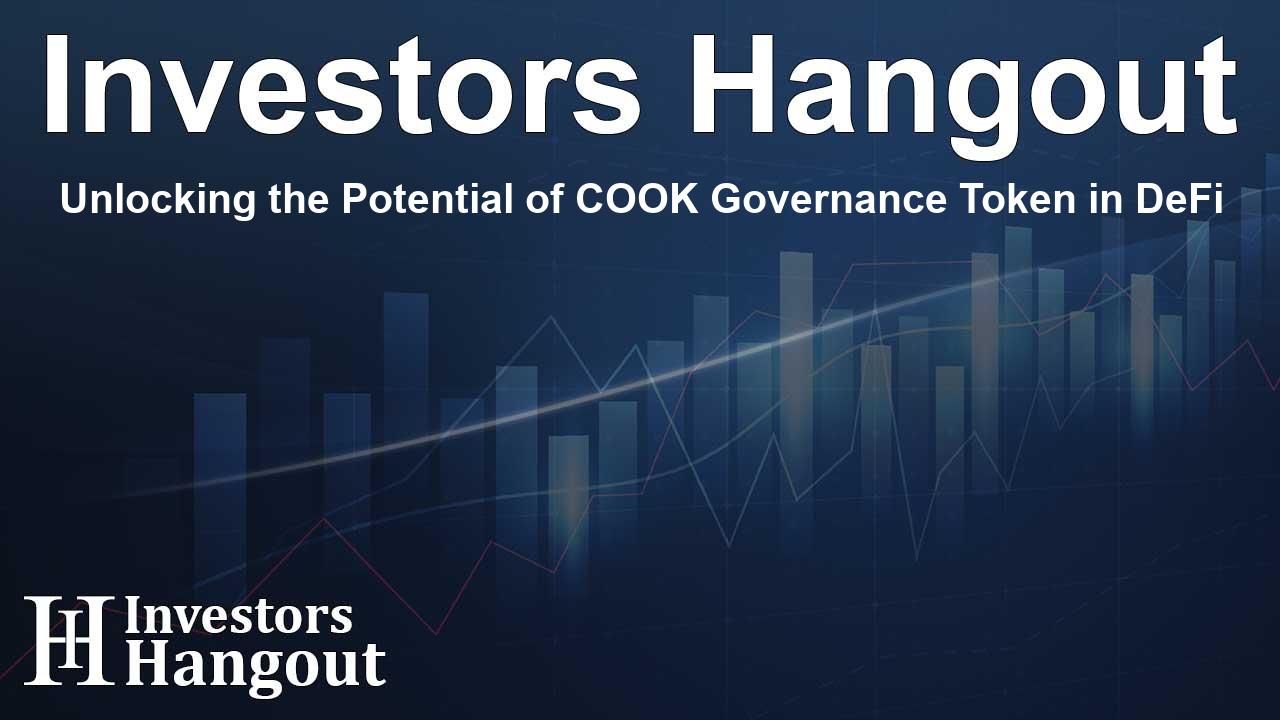Unlocking the Potential of COOK Governance Token in DeFi

Understanding the Power of COOK in DeFi
As decentralized finance (DeFi) continues to gain momentum, the role of governance tokens is becoming increasingly significant. COOK is the governance token for Mantle’s mETH Protocol, a pioneering platform for ETH liquid staking. This innovative protocol is changing how users interact with their assets, focusing on community engagement, governance, and flexibility. By utilizing COOK, users can actively influence the direction and development of the mETH Protocol.
What is COOK and How Does It Function?
COOK stands out as a governance token designed specifically for the mETH Protocol. Unlike typical stablecoins that are pegged to fiat currencies, COOK serves a distinct purpose: it empowers its holders with voting rights and a genuine voice in the operational dynamics of the protocol. This governance model includes the ability to vote on proposals that govern staking rewards, policy changes, and potential collaborations within the decentralized ecosystem.
Key Features of the mETH Protocol
The mETH Protocol is tailored to simplify and enhance the ETH staking experience for users. Here are some crucial aspects of how COOK integrates into this framework:
1. Enhanced Governance and Voting Privileges
With COOK in hand, community members can vote on crucial changes to the mETH Protocol. This includes adaptations to staking parameters and the introduction of new strategic initiatives. This voting mechanism fosters a sense of ownership among users, ensuring the protocol evolves in alignment with community preferences and market conditions.
2. Streamlined Liquid Staking
Users can benefit from the mETH Protocol's streamlined approach to liquid staking, which allows participation without the burdens of prolonged asset lock-up periods. As the governance token, COOK plays an essential role in shaping this staking model, ensuring it remains responsive to user needs and upholds industry best practices in risk management.
3. Promoting Decentralized Decision-Making
One of the core principles of DeFi is decentralized governance. COOK underpins this ideal by distributing decision-making power among its holders. This structure empowers the mETH community to take an active role in refining the protocol and contributing to significant updates, thereby reinforcing the essence of decentralized finance.
The Role of COOK in the Broader DeFi Landscape
As DeFi continually evolves, governance tokens like COOK become essential for promoting user-driven and community-focused protocols. Holding COOK translates to a real stake in the mETH Protocol, allowing users to influence its progress significantly. This governance capability ensures that mETH remains adaptable, transparent, and aligned with the objectives of its users, creating an inclusive environment for all participants.
Overview of the Liquid Staking Solutions
The mETH Protocol offers a unique advantage for users looking to stake Ethereum. By adopting a liquid staking model, users can earn staking rewards without facing the traditional restrictions of asset lock-up, thus maximizing their operational flexibility and capital efficiency. This approach directly ties into Mantle’s mission of enhancing DeFi accessibility and encouraging wider participation in the staking ecosystem.
COOK's Impact on the Mantle Ecosystem
As Mantle’s mETH Protocol continues to evolve, the significance of COOK within its governance structure becomes increasingly apparent. The active participation of COOK holders is vital for guiding the protocol’s updates and strategic decisions. Participants holding COOK have a direct influence on the development of ETH staking practices within Mantle’s ecosystem, which cultivates a more transparent and inclusive DeFi landscape.
Getting Started with COOK
If you are an enthusiast of DeFi and advocate for decentralized governance, COOK provides a powerful opportunity to engage actively in the Mantle ecosystem. By holding COOK tokens, users can participate in governance decisions, voting on proposals that will shape the future of ETH staking.
Frequently Asked Questions
1. What is COOK?
COOK is the governance token for Mantle’s mETH Protocol, allowing users to participate in the governance of ETH liquid staking processes.
2. How does COOK enhance governance?
COOK holders can vote on key proposals that dictate the direction of the mETH Protocol, influencing major decisions and initiatives.
3. What advantages does liquid staking provide?
The mETH Protocol's liquid staking model allows users to earn rewards without the need for an extended asset lock-up, increasing flexibility.
4. How can I participate in the mETH Protocol?
Users can become active participants by holding COOK tokens and engaging in governance voting on various proposals.
5. Why is decentralization important in DeFi?
Decentralization fosters community trust and participation, ensuring that protocols align with user interests rather than centralized control mechanisms.
About The Author
Contact Olivia Taylor privately here. Or send an email with ATTN: Olivia Taylor as the subject to contact@investorshangout.com.
About Investors Hangout
Investors Hangout is a leading online stock forum for financial discussion and learning, offering a wide range of free tools and resources. It draws in traders of all levels, who exchange market knowledge, investigate trading tactics, and keep an eye on industry developments in real time. Featuring financial articles, stock message boards, quotes, charts, company profiles, and live news updates. Through cooperative learning and a wealth of informational resources, it helps users from novices creating their first portfolios to experts honing their techniques. Join Investors Hangout today: https://investorshangout.com/
The content of this article is based on factual, publicly available information and does not represent legal, financial, or investment advice. Investors Hangout does not offer financial advice, and the author is not a licensed financial advisor. Consult a qualified advisor before making any financial or investment decisions based on this article. This article should not be considered advice to purchase, sell, or hold any securities or other investments. If any of the material provided here is inaccurate, please contact us for corrections.
